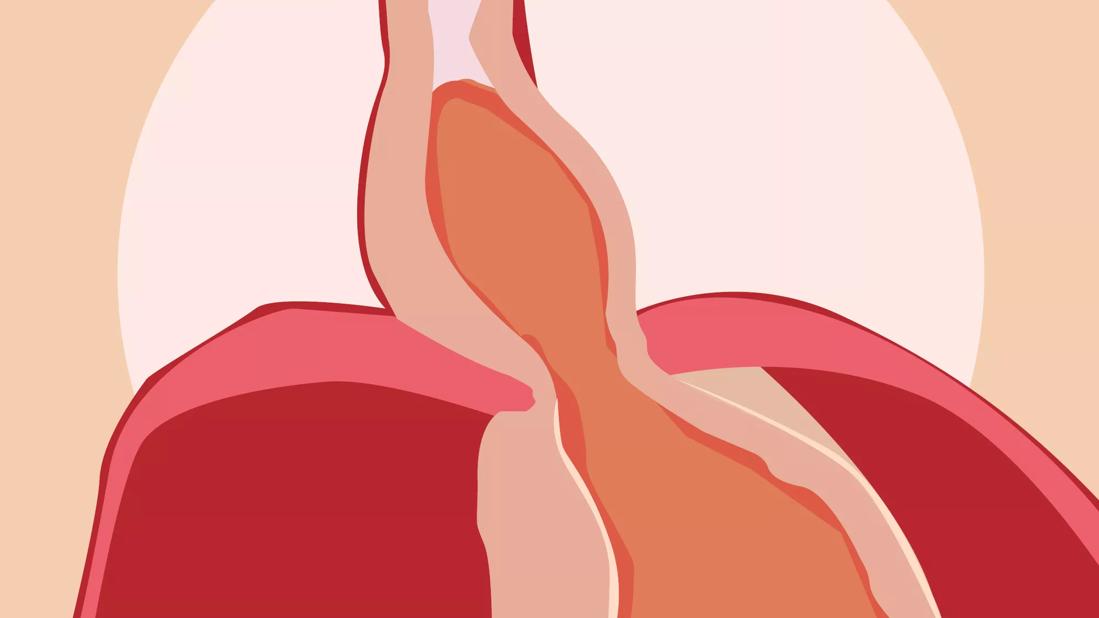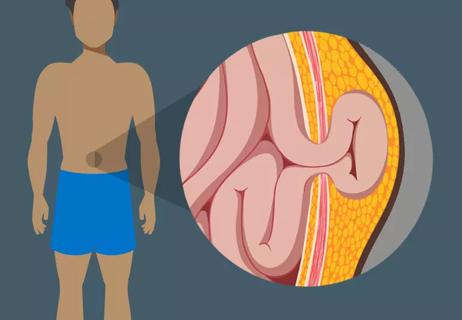Choose the best hernia center to avoid long-term pain and recurrence

Imagine having just a 50/50 chance of getting rid of your pain the first time you go in for surgery.
Advertisement
Cleveland Clinic is a non-profit academic medical center. Advertising on our site helps support our mission. We do not endorse non-Cleveland Clinic products or services. Policy
That’s the situation facing most hernia sufferers who require surgery. This is a get-it-right-the-first-time situation or else you’re back at square one.
Now, double down on this scenario for seniors who are suffering from a specific type of hernia. Hiatal hernias are most often found in people in their 70s and 80s. Many are treated with medication but, in the tougher cases, doctors recommend surgery.
“The absolute best time to get your hernia fixed, with the best chance of a great result, is the first time you get it fixed,” says general surgeon Michael Rosen, MD. “You want to go to somebody who’s a specialist and knows all the options. This will decrease the chances of complications like chronic pain or a recurrence of the hernia.”
Hernias are a hole in something that allows things to poke through that typically shouldn’t. Hiatal hernias are located in the diaphragm where the esophagus joins the stomach and they typically cause heartburn and reflux. If the hernia just makes you uncomfortable, your doctor will treat it with medications.
More serious hiatal hernias, also known as paraesophageal hernias, become larger over time and the stomach starts to rise farther into the chest. This sometimes causes significant chest pain after eating and can even cause weight loss and bleeding.
Advertisement
“In those cases, surgery is usually needed,” says Dr. Rosen. “It’s best to ask your doctor about treatment as soon as a hernia begins to cause discomfort.”
So why is that first surgery so important?
An unsuccessful surgery is frustrating for the surgeon, but even more so for the patient because of the resulting poor quality of life. Plus, the symptoms bothering you in the first place can return. Risks associated with remedial surgery include recurrent heartburn, difficulty with swallowing, increased bowel symptoms and nerve damage.
“Working with an experienced surgeon is best for any hernia patient, but surgeries for recurrent hernias, especially in older patients, are even more complex and challenging,” says Dr. Rosen.
If you reach the point where you need hernia surgery, it’s important to go to a comprehensive hernia center to get the best treatment. With expertise in both minimally invasive surgery and large comprehensive surgery, a dedicated hernia center helps ensure the operation is done right the first time.
“Advances in minimally invasive surgery mean that, for many patients, hernia surgery is no longer a major operation that puts you in the hospital for a week to 10 days,” says Dr. Rosen. “Patients now typically go home within a couple of days.”
In most patients, the cause of a hernia is not known but an injury, straining or weakness in the area may contribute. Two other types of hernias can impact the elderly but are no more likely to occur later in life than at a younger age.
These hernias occur in the groin and are more common in men. They are typically associated with heavy lifting, constipation and prostate issues that cause urination difficulty or increases in abdominal pressure.
“They can cause a lot of pain and discomfort,” says Dr. Rosen. “There is no way to prevent any hernia and not doing heavy lifting wouldn’t prevent them.”
Once you notice a bulge in your groin that causes discomfort, it’s time to go see a physician.
“Once you have a hole there, it will never go away on its own,” says Dr. Rosen. “Most of these hernias can now be fixed using minimally invasive techniques with decreased post-op pain. They can help you return to regular activity levels a lot quicker.”
Ventral hernias occur in the abdomen and also exhibit a bulge and pain. These will not go away and there’s no way to prevent them. These hernias are more common in people who have obesity, diabetes or chronic smoking habits, but being in good health reduces the chances of those complications.
Advertisement
“Sometimes doctors perform these surgeries laparoscopically and sometimes they reconstruct the entire abdominal wall. The latter provides two advantages,” says Dr. Rosen. “It improves your functional outcome because you get your core muscles back, plus it improves the cosmetics because you end up with a flatter abdomen.”
Advertisement
Learn more about our editorial process.
Advertisement

Hernias don’t go away on their own, but they don’t always require surgery either

Dairy, wheat, seafood, nuts and other foods may trigger inflammation

People with an inflamed esophagus may also have other conditions that cause a nagging, persistent cough

Your tolerance decreases with age, thanks to body changes, health conditions and medications you may take

Your body naturally produces the protein that’s essential for breaking down and digesting food

Nausea, fullness, heartburn and unexplained weight loss may signal that something is going on with your GI system

Choose foods that are low in fiber and easy to chew and swallow

What, when and how much you eat are just a few factors that can impact nighttime gas levels

Start having sex about 72 hours before ovulation, then at least every other day during your fertile window

Attachment theory suggests that your earliest relationships shape connections throughout your life

It isn’t a recognized mental health disorder, but research shows that problematic social media use can negatively affect your mental health, self-esteem and sleep